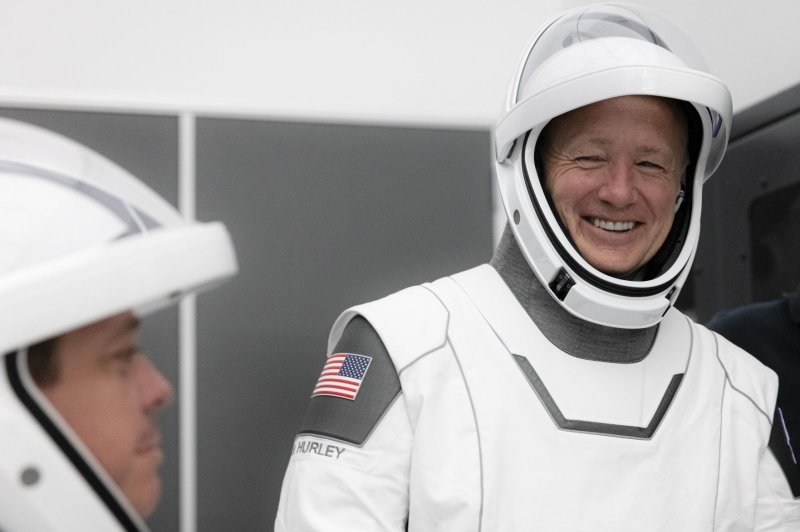NASA astronauts Bob Behnken (L) and Doug Hurley participate in SpaceX's flight simulator rehearsal in March. File photo courtesy of SpaceX |
License Photo
ORLANDO, Fla., May 1 (UPI) -- The duration of SpaceX's first mission with astronauts on board -- planned to launch at May 27 from Florida -- has been extended from a few days to potentially weeks aboard the International Space Station, NASA said Friday.
The mission was lengthened to ensure that the crew -- astronauts Bob Behnken and Doug Hurley -- can help maintain and operate the space station, NASA Administrator Jim Bridenstine said in a statement.
"Among the work that will await their arrival is upgrading the space station's power system with new batteries due to arrive in May," Bridenstine said. "Without the presence of Behnken and Hurley, we otherwise would likely defer such an operation until additional NASA crew members are available."
SpaceX's Crew Dragon capsule is certified to stay in space for about 110 days, but Behnken and Hurley will stay as briefly as possible, NASA officials said. Engineers want the capsule back on Earth to conduct final certification checks and prepare it for another flight.
The launch would be the first from U.S. soil since the space shuttle era ended in 2011. It is to occur amid the COVID-19 pandemic, but the astronauts will be quarantined for two weeks beforehand. NASA has asked that people not travel to the Kennedy Space Center area to watch the 4:32 p.m. EDT liftoff.
The space station has three people on board -- NASA astronaut Chris Cassidy and cosmonauts Anatoly Ivanishin and Ivan Vagner. It has hosted up to 13 people, a record set in 2009.
Elon Musk's SpaceX has flown to the space station 21 times -- 20 cargo missions and one uncrewed test flight.
"We need to have the capability of accessing space, not just for NASA, but for all of humanity," Bridenstine said in a news conference.
U.S. astronauts have flown to the space station aboard Russian Soyuz capsules since 2011. NASA is negotiating with Russian space officials for a seat on another Soyuz in October.















